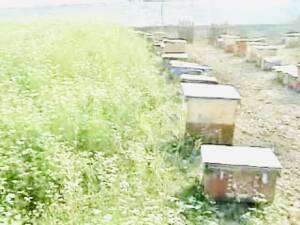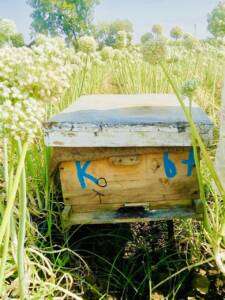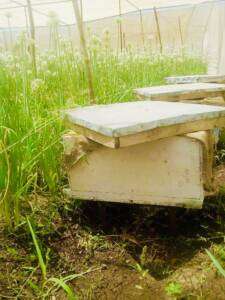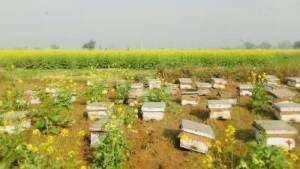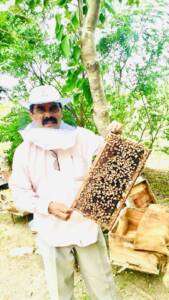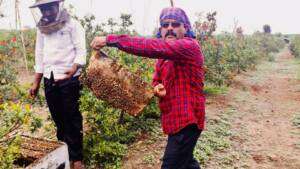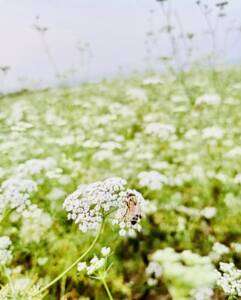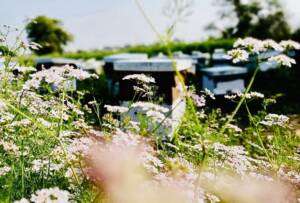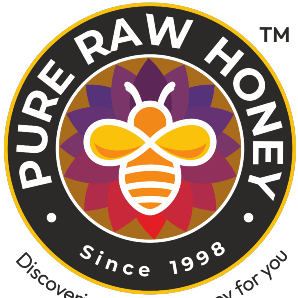Pollination
Pollination is the movement of pollen from the anthers of a flower to the stigma of the same or a different flower. It is one of the most important parts of the economic production of many crops.
Pollen grains contain the male genetic material that must be moved to the female reproductive structures for production of fruit.
Crops relying on bee pollination include apple, citrus, tomato, melon, strawberry, apricot, peach, mango, grape, carrot, potato, onion, pumpkin, bean, cucumber, sunflower, various nuts, alfalfa, etc.
No other group of insects is of more benefit to humans than bees. More than one-third of the world’s crops require pollination to set seeds and fruits, and most rely on bees for pollination.
We help farmer for the pollination work where we setup our bee boxes in their farm to achieve the pollination.
Honeybee species can effectively be utilized for pollination of crops because
- Honeybees are dependent on flowers for pollen and nectar as their food.
- The bees possess some morphological adaptations favorable for pollen carry over and
transfer. - The honeybees can be kept in the hives and are very easy to be managed.
- Due to their polylactic nature, honeybees visit large number of plants, therefore, they can
pollinate a wide variety of crops. - Their abundance on the crop can easily be manipulated.
Pollination Video from Farm :
Some of our pollination work field photos.
